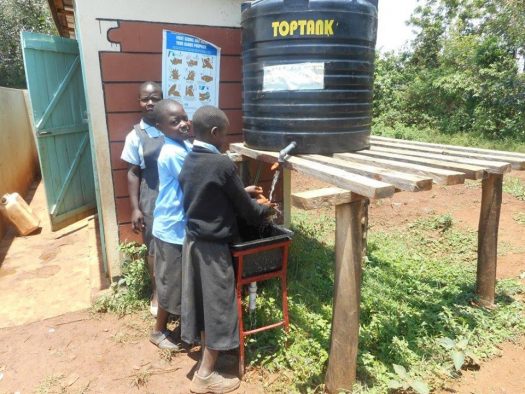Blog
Podcast – How our Water Works for Girls project is changing lives

Water Works for Girls
Team Kenya, in partnership with Tag International Development and with the generous support of the Jochnick Foundation, have implemented a project to leverage water to improve education for girls in Ndhiwa through better health and hygiene, upgraded nutrition and psychosocial support for girls and women. We have introduced a pioneering rainwater harvesting system into schools in Ndhiwa to provide clean and safe water for children to drink and use for hand- washing.
The overall objective is to ensure a physically and emotionally healthy and supportive learning environment for the children, along with improved economic stability for families so that children, especially girls, can complete primary education, continue through secondary education and be able to fulfil their life’s potential.
This podcast was created by Valerie Opiyo, former project lead for the WWFG project.
Three focus areas
Educational— Providing clean water and sanitation facilities to enable physically supportive learning environment and improving food access in the schools.
Gender—Providing the community with tools to reduce Gender Based Violence and empower victims.
Economic—Increasing the income of farmers in the community to reduce the pressure on the girls to leave school early.
See more detail below.
Vital need for this project
Few girls successfully complete primary education and continue through secondary school in rural areas of Kenya. Why?
Hunger and poor nutrition stymie children’s growth and cognitive development, but girls face additional stressful and sometimes traumatic challenges:
Lack of clean water and basic sanitation in schools keeps many girls away for a week each month during menstruation. They fall behind and lose motivation to continue.
Girls are often burdened with domestic and farm chores (including the difficult and time-consuming task of fetching water), a situation exacerbated during flood/drought extremes when food and/or water become scarce.
Some girls are forced to be caregivers in families struggling for subsistence and families in which a parent has died from HIV/AIDs or other causes.
Girls who drop out of or infrequently attend school not only miss out on professional and vocational opportunities, they are also vulnerable to early marriage (forced or by immature choice), teenage pregnancy, sexual abuse and other gender based violence.
You can read more about the project on Tag’s website.